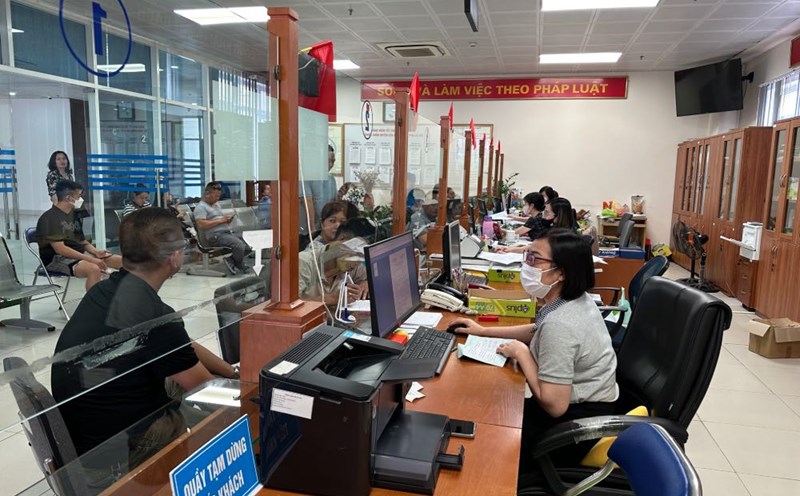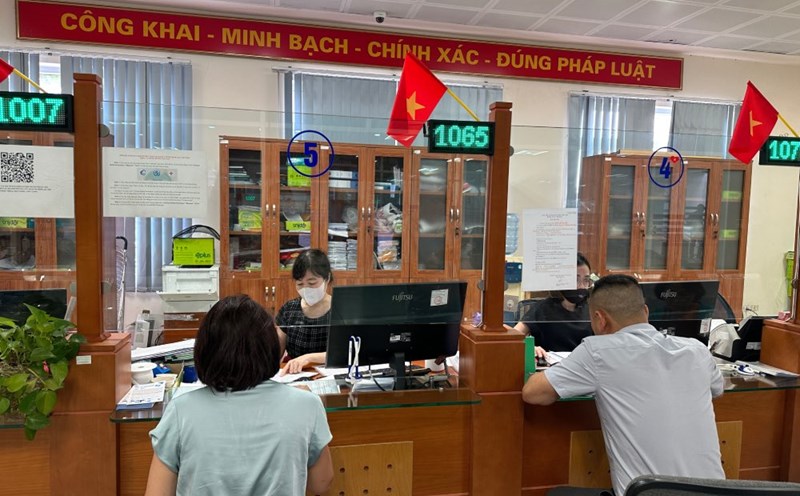However, for those who do not meet this requirement, the law also offers options for receiving monthly allowances, being granted free health insurance and still having a pension if they continue to pay for additional time.
Paying social insurance for 15 years is entitled to pension
The Social Insurance Law 2024, effective from July 1, has changed regulations on pension conditions compared to the Social Insurance Law 2014. Accordingly, employees who are of retirement age and have paid social insurance for 15 years or more will receive a monthly pension and will be issued a free health insurance card for health care throughout the pension process. This regulation is applied to all those who have participated in social insurance since before the effective date of the amended Social Insurance Law.
The 2024 Social Insurance Law stipulates that employees who are old enough to retire and have paid social insurance for 15 years or more will receive a monthly pension. This regulation aims to create opportunities for those who start participating in social insurance late or participate in a non-continuous manner to have the opportunity to accumulate 15 years of contributions (instead of 20 years as stipulated in the Social Insurance Law 2014) to receive a monthly pension instead of receiving one-time social insurance.
In case the employee has paid social insurance for more than 15 years, he/she will receive a pension with a higher benefit rate due to long-term social insurance contributions. Accordingly, regarding the monthly pension, for female workers, it is equal to 45% of the average salary used as the basis for social insurance contributions prescribed corresponding to 15 years of social insurance contributions, then for each additional year of contributions, an additional 2% is calculated, with a maximum of 75%.
For male workers, the average salary is equal to 45% of the prescribed basis for social insurance contributions corresponding to 20 years of social insurance contributions, then for each year of contributions, an additional 2% is calculated, with a maximum of 75%. In case male workers have paid social insurance for 15 years to less than 20 years, the monthly pension is equal to 40% of the average salary used as the basis for social insurance contributions prescribed, then for each additional year of contributions, an additional 1% will be calculated.
On the other hand, this regulation of the revised Law on Social Insurance is still attractive, encouraging employees to maintain social insurance payment time to receive pensions, contributing to reducing the number of people withdrawing social insurance at one time. Thereby, creating opportunities for all employees when they are past working age to have a stable source of income from pensions and have free health insurance cards for health care.
Having paid social insurance for less than 15 years, what should employees do?
First, in case employees are not eligible for retirement (not yet paid social insurance for 15 years), they should continue to participate in social insurance to have the opportunity to enjoy higher benefits such as:
- When continuing to participate in social insurance, employees are entitled to preferential benefits with higher benefits because the benefits are all calculated based on the payment period such as sick leave, work accidents, occupational diseases, etc.
- Receive pension under easier conditions (regarding the condition that the minimum number of years of contribution to receive pension is 15 years instead of 20 years as prescribed in current regulations);
- During the pension period, beneficiaries will also receive health insurance from the Social Insurance Fund, pay medical examination and treatment fees to take care of their health when they are old.
Second, in the case of social insurance participants who are old enough to retire (but have not paid social insurance for 15 years to receive a pension) and are not old enough to receive social pension benefits, if they do not receive one-time social insurance benefits and do not reserve the time of social insurance payment but have a request, they will enjoy the following regime:
- Receive monthly allowance from your own social insurance contributions. The duration and monthly allowance are determined based on the payment period and salary used as the basis for social insurance contributions of employees. The lowest monthly allowance is equal to the social pension allowance.
- During the period of receiving monthly allowances, beneficiaries are entitled to state budget health insurance contributions; when they die, relatives are entitled to a one-time allowance for the months not yet received and a funeral allowance if they meet the prescribed conditions.











